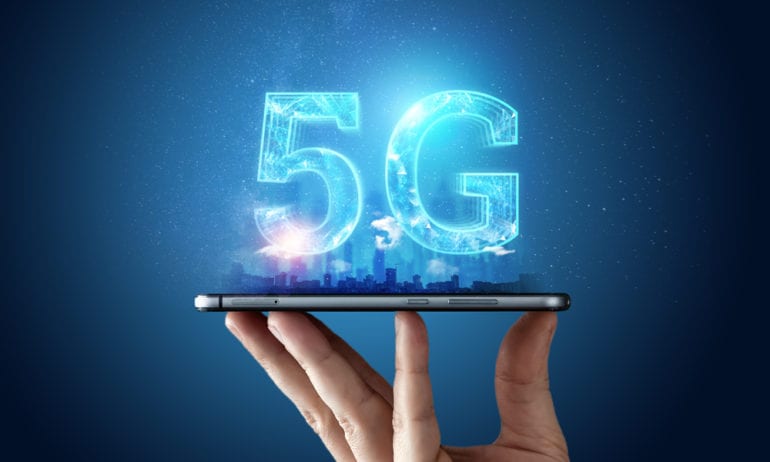If you’ve been shopping for a new phone, you might have run across the term “5G.” But what is 5G, how does it work, and how is it different from 4G? Here’s everything you need to know about 5G, how fast it really is, and if the next-generation technology is safe.
What Is 5G?
5G is the fifth generation in mobile internet technology that promises to deliver much faster download speeds, lower latency, greater reliability, and higher capacity than the previous 4G LTE generation.
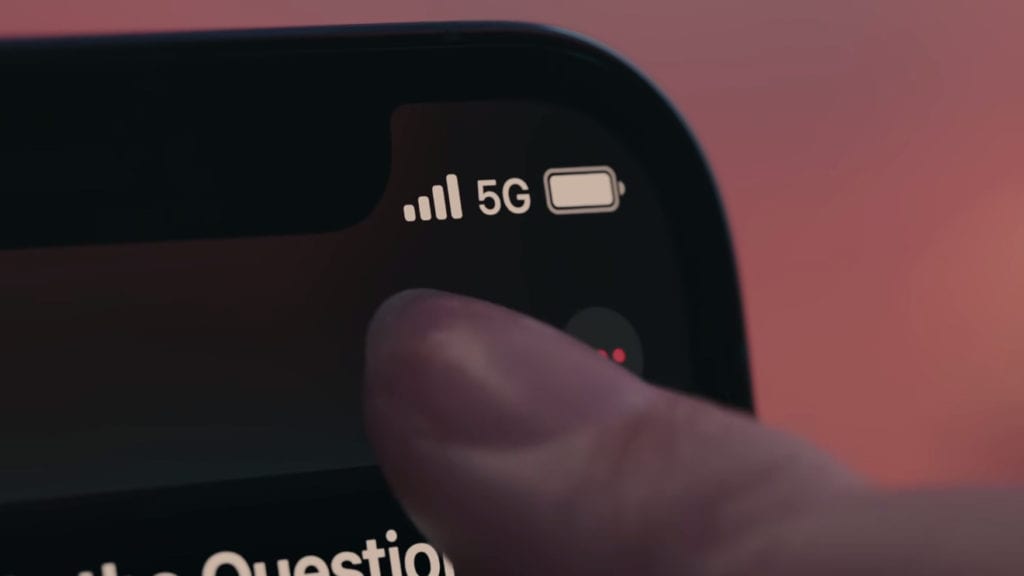
With 5G, you will be able to download movies much faster and stream videos without experiencing any buffering. With its ultra-low latency, it will let you play the latest games and have video chats without experiencing any lagging. And, with its enhanced reliability and capacity, you will get better service, even if you’re in a crowded area.
However, 5G technology is still very new, and only certain carriers offer coverage in select parts of the country. If you want to know where 5G is currently available and when it will be available in your area, check out our article here.
What Is the Difference Between 4G and 5G?
The main difference between 4G and 5G is that the latter can use high-band radio waves. This allows 5G to be anywhere from 10 to 100 times faster than 4G. However, this also means that it has a more limited range, so 5G coverage is currently much more spotty than 4G.
The first-generation cellular networks (1G) used analog signals that delivered top speeds of 2.4 Kbps (kilobits per second). The 2nd-generation networks brought call phones into the digital world and delivered speeds up to 50 Kbps. Then came 3G, which delivered speeds of up to 2 Mbps (megabits per second).
Most cell phones these days work on 4G networks, which can deliver speeds between 10 Mbps and 100 Mbps. Now, 5G promises download speeds up to 20 Gbps. However, these speeds can be different depending on which provider you use, where you are located, and more.
Another difference between 4G and 5G is that the latter offers much lower latency, which means it can send and receive data much faster. On average, 4G networks have a latency of around 50 milliseconds (ms). In contrast, the average latency for 5G networks is around 10 ms, and, in ideal situations, that can drop to just one millisecond. So, any delay you would experience would be less than the time it takes for your brain to process an image, which is about 13 ms, according to research from the Massachusetts Institute of Technology.
With its higher capacity, network congestion will also be a thing of the past. While 4G networks are capable of supporting 4,000 devices per square kilometer, 5G can support around 1 million devices per kilometer. That means you don’t have to worry about your web pages loading slowly, even when too many devices are using the same network.
How Fast Is 5G Really?
5G is designed to deliver speeds up to 20 Gbps, which is fast enough to download an entire high-definition movie in seconds. However, real-world tests show that 5G networks only deliver a fraction of the theoretical download speeds currently.
According to the most recent data gathered by Ookla, 5G currently delivers median download speeds of around 200 Mbps. With over 4 million speed tests conducted around the world, Ookla found that 5G offers download speeds that are 954% faster than 4G. That’s faster than the average WiFi download speeds in the US, according to Ookla.
If you want to find out how fast your internet connection is, check out our guide on how to test your WiFi speed here.
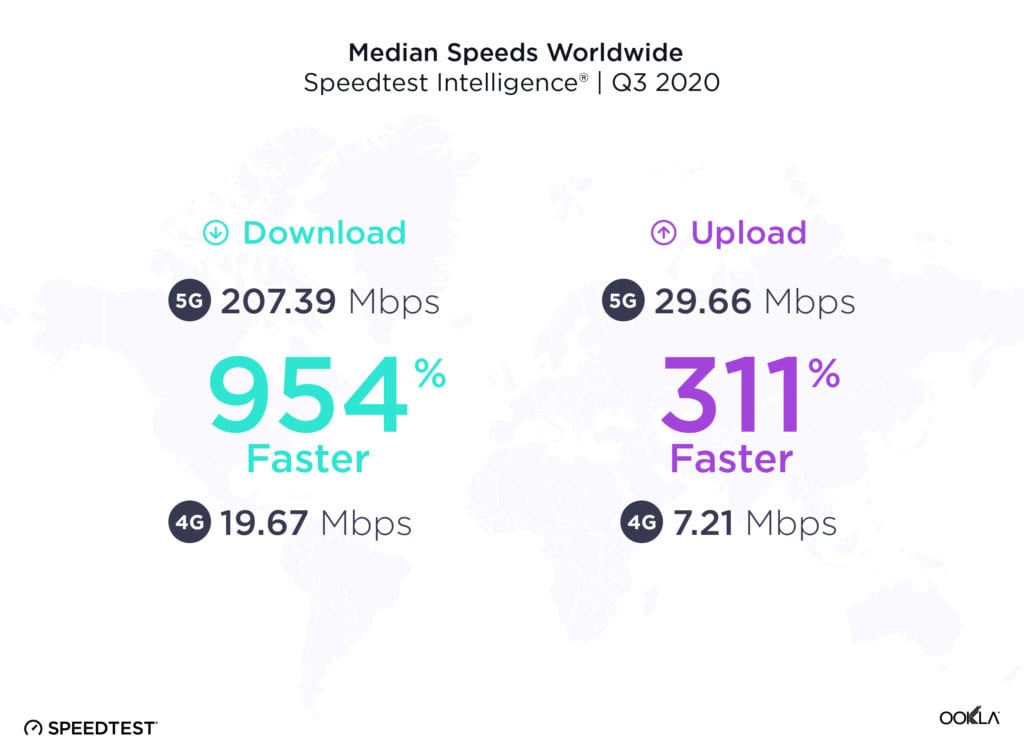
The latest User Experience Report from Opensignal showed that Verizon offered the fastest 5G network in June, with average download speeds of nearly 500 Mbps. However, that same report also shows that Verizon’s 5G network is only available to a fraction of users, while T-Mobile offered the greatest coverage with over 22% of users being able to connect to the network.
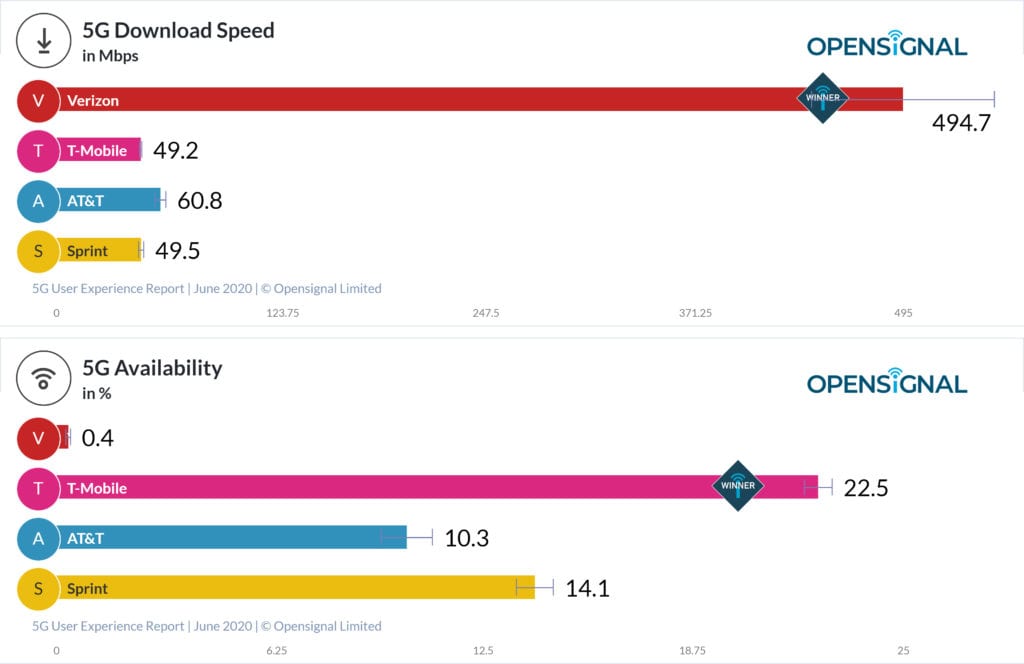
Despite these numbers, 5G coverage is expected to improve by late 2021 after the Federal Communications Commission auctions mid-band ranges by the end of 2020.
How Does 5G Work?
For the most part, 5G works in the same way that 4G does, by transmitting radio signals from cell towers. However, 5G can use low-band (for greater coverage), high-band (for faster speeds), and mid-band (for a balance of speed and range) radio frequencies.
All cellular networks operate on the electromagnetic spectrum that includes everything from radio waves to gamma rays and visible light. This is the same spectrum that your other devices, such as your TV, radio, and WiFi router operate on.
However, 5G can operate on additional frequency bands than 4G, which means it can transfer more information at once. Basically, it adds more lanes to the cellular network highway, which allows more traffic.
Is 5G Safe?
There is no evidence that 5G is not safe. Since 5G operates on the non-ionizing side of the electromagnetic spectrum, it does not produce enough energy to rip apart molecules or DNA. On the other side of the spectrum, ionizing radiation, like X-rays and gamma rays, can cause cancer.
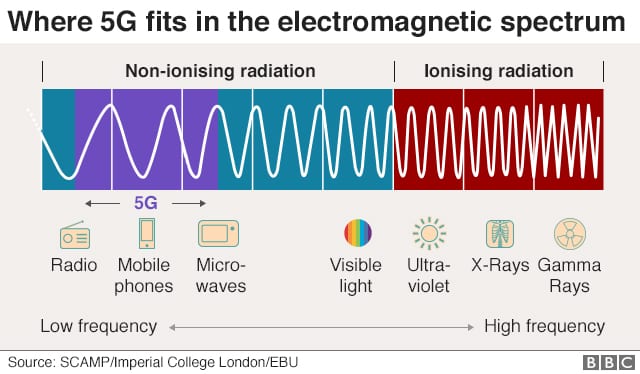
In fact, the international body in charge of setting limits on exposure to radiation recently revised its guidelines to include 5G. The International Commission on Non-Ionizing Radiation Protection (ICNIRP) states that “initial measurement studies suggest that exposure from 5G antennas will be approximately similar to that from 3G and 4G antennas.”
What Phones Have 5G?
In the past year, several new phones have been released that use 5G technology, including the Samsung Galaxy S20 and the iPhone 12 Pro Max. Budget options include the Google Pixel 4a and the TCL 10. For mid-range options, there’s the Samsung Galaxy A90 and the Moto Z3.
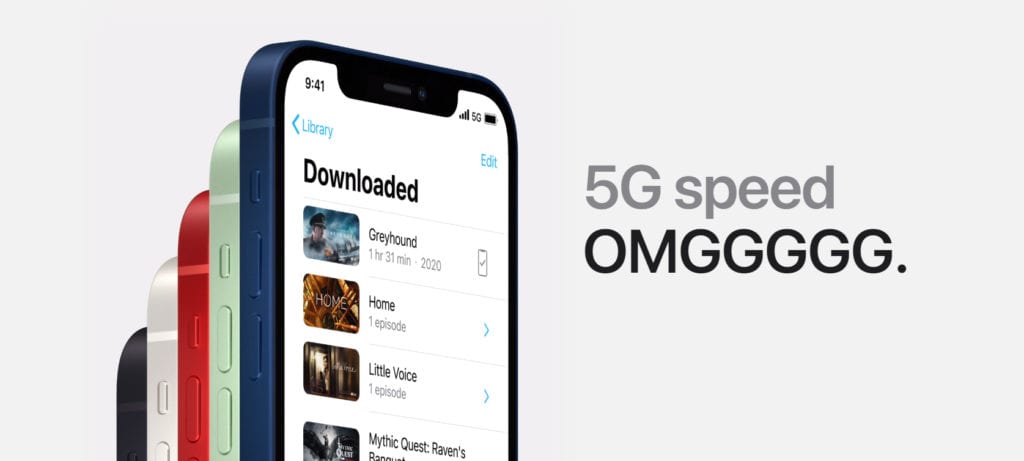
Samsung first released the world’s first 5G phone, the Samsung Galaxy S10, in April 2019. Since then, manufacturers have joined the race. Aside from the popular models mentioned above, you can buy phones that have the latest cellular technology from a wide range of manufacturers from established brands like LG, Sony, Nokia, and HTC to relatively new players like Realme and Xiaomi.
When it comes to phone plans, major carriers like Verizon, AT&T, and T-Mobile offer different types in various makes and models. Just make sure to do your research to find out what band your carrier uses and if your area is included in its coverage.
